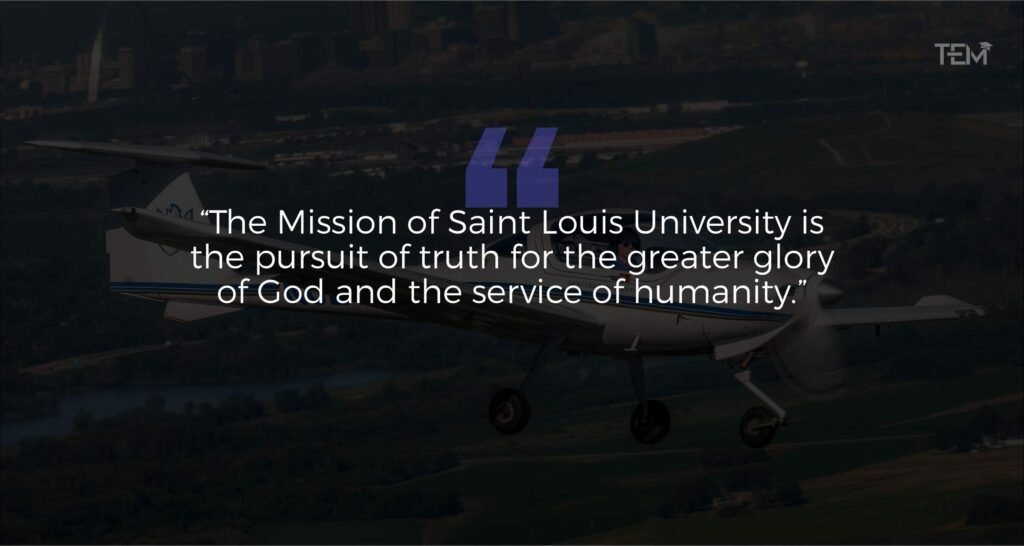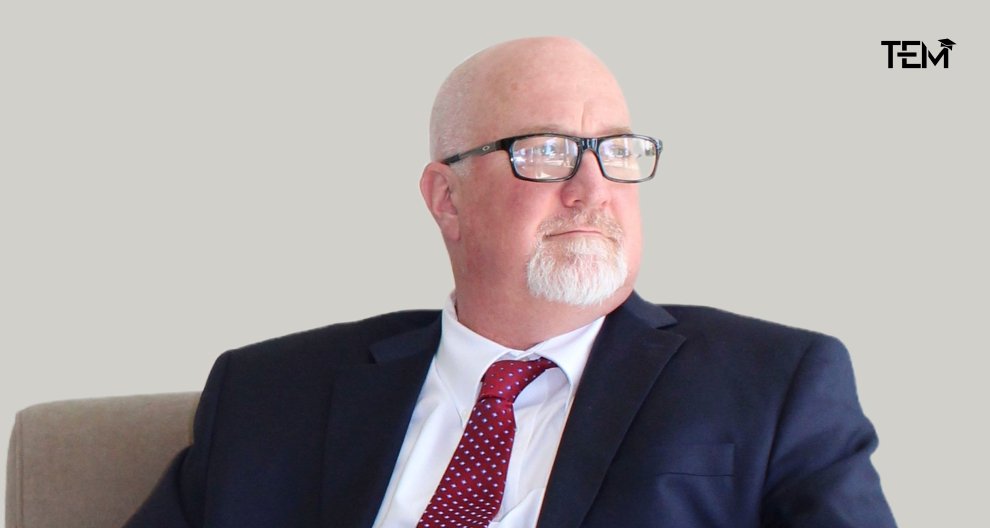The majority of technical training in aviation schools has given way to a more traditional academic experience and students are now expected to be well-educated and trained. They require training that covers resource management, psychology, human issues, and ethics in addition to the essentials of the flight crew. Simply being able to fly an airplane is no longer sufficient. Knowledge about the airline, air carrier operations, charter operations, fixed-base operations, and everything in between has become essential. Students need to comprehend the aviation business as a whole.
Saint Louis University (SLU) provides aeronautics specializations in both flight science and aviation management. The institute provides career options for students who are certain that they wish to pursue a career flying airplanes and should enroll in the flight science program. And students who might desire to pursue another career in aviation, such as an airport manager or flight dispatcher, should enroll in the aviation management track.
Beginning of a Historic Excellence
One of the oldest and most esteemed Catholic universities in the country, Saint Louis University is based in St. Louis, Missouri, and also has a campus in Madrid, Spain. SLU, which was founded in 1818, is renowned for its top-notch academics, groundbreaking research, compassionate medical treatment, and unwavering devotion to faith and service.
The Oliver L. Parks Department of Aviation Science, which is a part of the broader University, was established in 1927 and was the nation’s first flight school to receive federal certification. 10% of the pilots who flew in World War II were trained at the institute in the 1940s. The graduates have gone on to work as airline executives and captains, Blue Angels, NASA space directors, and a variety of other positions. The mission of Saint Louis University is to further the glory of God and serve humanity by pursuing the truth. The institute strives for excellence in the pursuit of its institutional goals of teaching, research, healthcare, and community service.
Catering to Educational Requirements
Students nowadays still need technical aviation knowledge in addition to interpersonal skills, the capacity to keep up with current business trends, and the capacity to foresee the future. Aeronautics at SLU has developed from a largely technical degree to one that is today completely well-rounded, including courses in human factors, air carrier operations, and fundamental flight crew procedures. Students are also expected to grasp aviation law and ethics.
Technical knowledge requires understanding that goes beyond basic flying. One must have experience flying airplanes in the transport category. SLU offers a wide variety of subjects to aid its students in understanding subjects like these. The institute’s fleet includes vehicles with innovative Garmin G1000nxi navigational equipment. The school guarantees that its graduates have received the greatest education possible to pursue their aspirations after they graduate.
SLU’s fleet consists of Piper Archers, Piper Seminoles, and Diamond DA-20 aircraft. To support flight training courses, the institute offers a wide variety of flight simulators. In the first two weeks on campus, students are flying planes (with flight instructors). Students fly in a dynamic and complicated air environment because the institute operates in an area with a lot of air activity, including corporate aviation, military, manufacturing, and major and regional airlines. Flying skills must be developed by students in congested airspace.
Aviation-Focused Groups and Activities
There are numerous student-run aviation-focused groups at Saint Louis University. To name a few:
- Alpha Eta Rho’s objective is to support members in achieving their unique aviation career goals by encouraging professional development and presenting chances that would not often be available to men and women in college.
- Women in Aviation International (WAI) is an organization dedicated to advancing women in the aviation industry. The Saint Louis University chapter was founded with this objective.
- Flying Billikens, NIFA Flight Team: The primary goal of The Flying Billiken is to impart knowledge on a variety of aviation-related subjects, including flight planning, preflight, navigation, the E6B flight computer, and landings, to present these subjects at the National Intercollegiate Flight Association Competition (NIFA) in the fall.
The additional 100+ student organizations and service organizations on campus are all open to aviation students.
Career Opportunities
To acquire the flight hours required to become airline and enterprise pilots, many recent SLU flight graduates choose to start their careers as flight teachers. They can all, however, perform a range of jobs in the aviation sector. Furthermore, graduates go on to fly for all military branches. Graduates in aviation management work in a range of aviation-related fields, including airlines, airports, fixed base operations, and more.
Diversity and Inclusion on the Campus
The Oliver L. Parks Department of Aviation Science chairs the Diversity, Equity, and Inclusion Committee at SLU’s School of Science and Engineering. The institute promotes girls in Aviation Day through outreach to area high schools, flying clubs, and organizations each year. The institute invites a large number of young girls to school on this day so they can learn about every facet of the aviation profession. For students from underrepresented groups who want to pursue their goals of studying aviation, SLU also provides scholarships.
Furthermore, there are a lot of international students in the aviation department at SLU.. The governments of many foreign nations have funded SLU students to pursue aviation degrees. International students are brought to SLU’s campus through the INTO Program.
An Alumni Dedicated to SLU
Steve Magoc, the chairperson of the Oliver L. Parks Department of Aviation Science graduated from SLU and worked in the aviation industry. He saw the opportunity to return to SLU and help educate the next generation of aviation professionals. SLU’s strong mission and vision have guided his career and kept Steve there for more than 40 years. Seeing students go on to fulfill their lifelong dreams of becoming pilots and industry leaders keeps Steve engaged and working to keep the program relevant despite the ever-changing nature of the industry.
Talking about his goal, Steve states, “I love the aviation industry. I enjoy giving back and helping to develop the next generations of aviation leaders. My goal is to continue to try to stay at the front of aviation changes that affect the industry and stay in line with the trends to continue to attract top-notch students.”
When asked for a piece of advice for students seeking a career in the aviation industry, Steve enunciates, “Be on time. One second late is still late. Understand that you are getting into an industry that changes frequently. Seek out skills that you can learn or develop that can be useful in the aviation industry or within other industries during downturns in the aviation industry.”
Quote



